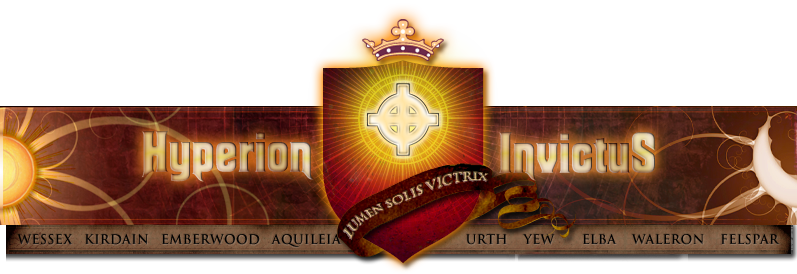I have been going about a matter of utmost importance to the Church in the wrong manner. I would implore the Council to allow me to take a more direct approach so that this issue may be resolved.
The Council of Bishops mirrors the House of Lords. It meets and decides on legislation which will effect the entirety of the Church.
The Archbishop is the head of the Council in the same way the King is the head of the House of Lords. It is the responsibility of the Archbishop to enforce the decisions of the Council, as it is the King's responsibility to enforce the decisions of the House of Lords. It is also the responsibility of the Archbishop to provide the Church with direction when needed, as it is the King's responsibility to provide the Kingdom with direction.
There are differences, for example, the Archbishop does get a vote, and does not have the power of veto. He can, however, make a decision without consulting the Bishops...the same way the King can make a Royal Decree in time of need, when all of the Bishops/Lords would probably be of one mind on the matter anyway or when he is acting in the best interest of the Kingdom (say he has sensitive information that the other Bishops do not), and where time is of the essence.
As the head of the Church, the supreme governor, the King does have the power to veto a decision of the Council/Archbishop because he needs to keep the big picture in mind, and if the Council and Archbishop "screw up," he needs to be able to step in and say, "that's just an awful idea." He also picks the Archbishop because he needs to be able to count on someone to make those important and speedy decisions without consulting the Council, or him.
Now, the Hundred offered this Rule as the guidelines for the Virtuous Hundred. The Council altered it, and sent it back down for the Hundred to say, "ok we agree to play by these rules, and in return we get the benefits of belonging to the Church." This functions as a sort of contract...the same way the Carta Solis is a contract between the King and the Lords. If one of them broke the Carta Solis, even if it were Wessex, the Royal Sheriffs would be called in.
Our equal to Royal Sheriffs would be Inquisitors, which we don't have. Breaking a secular law is "illegal," whereas breaking a Divine law is heresy. The Carta Solis is the Supreme Law of the Kingdom, the Constitution of the United States is the Supreme Law of the U.S., The Constituion of the Republic of the Silver Sun is the Supreme Law of Aquileia. The Rule of the Virtuous Hundred is the Supreme Law of the Order, the Virtuous Hundred. By its nature, breaking the Supreme Law of the Virtuous Hundred is heresy.
Once Father Aethliric said he had no intention of obeying the Supreme Law of his Order, I recognized it as heresy immediately.
In my arrogance, I sought out Cynewulf, believing he would side with the decision of the Ecumenical Council, because it's his job to enforce their decisions. Even when the King told me to bring this in front of the Bishops, I confidently praddled on...certain that Cynewulf would see the logic in my arguments. I was mistaken.
Now we are faced with an incident which may result in the Council no longer being able to set, and enforce its own standards. Where actual heretics are in-charge of Military Orders.
Consider the following:
If an opinion or doctrine in philosophy, politics, science, art, etc., is at variance with those generally accepted as authoritative then it is heresy.
If a person expresses or acts on opinions considered to be heresy, then he or she is a heretic.
If The Rule of the Virtuous Hundred is the authoritative doctrine on how the members of the Order of the Virtuous Hundred are to live their lives, then for a member of the Virtuous Hundred to hold an opinion in contrast to their Rule makes them a heretic.
If Father Aethlric expresses the opinion that his members should not be living a life by the Rule of their Order, then he is a heretic.
----
Therefore, Father Aethlric is a heretic.
Even if you do believe in God, he himself can not change the Rules of Logic, just as he can't change the laws of mathematics.
Even if my character is killed off, the Hundred kills 1 billion players, or they donate an endless supply of gold - it will not change the fact that an Order in the Church is run by a heretic. An actual heretic, in the same way a member of the Kingdom might be an outlaw, so practical RP-wise. I don't believe he knows it, and I think I haven't helped because what I have been saying seems like RP fluff. That's why I've decided to change my approach a bit.
All he has to do to be forgiven is say, "I'm sorry, I didn't know," and renogiate his Order's "contract."
I should've just said all of this from the beginning, and I'm sorry for dragging all of this out with what seems like nonsense. I would implore the Council to discuss this matter so that a solution can be reached.



